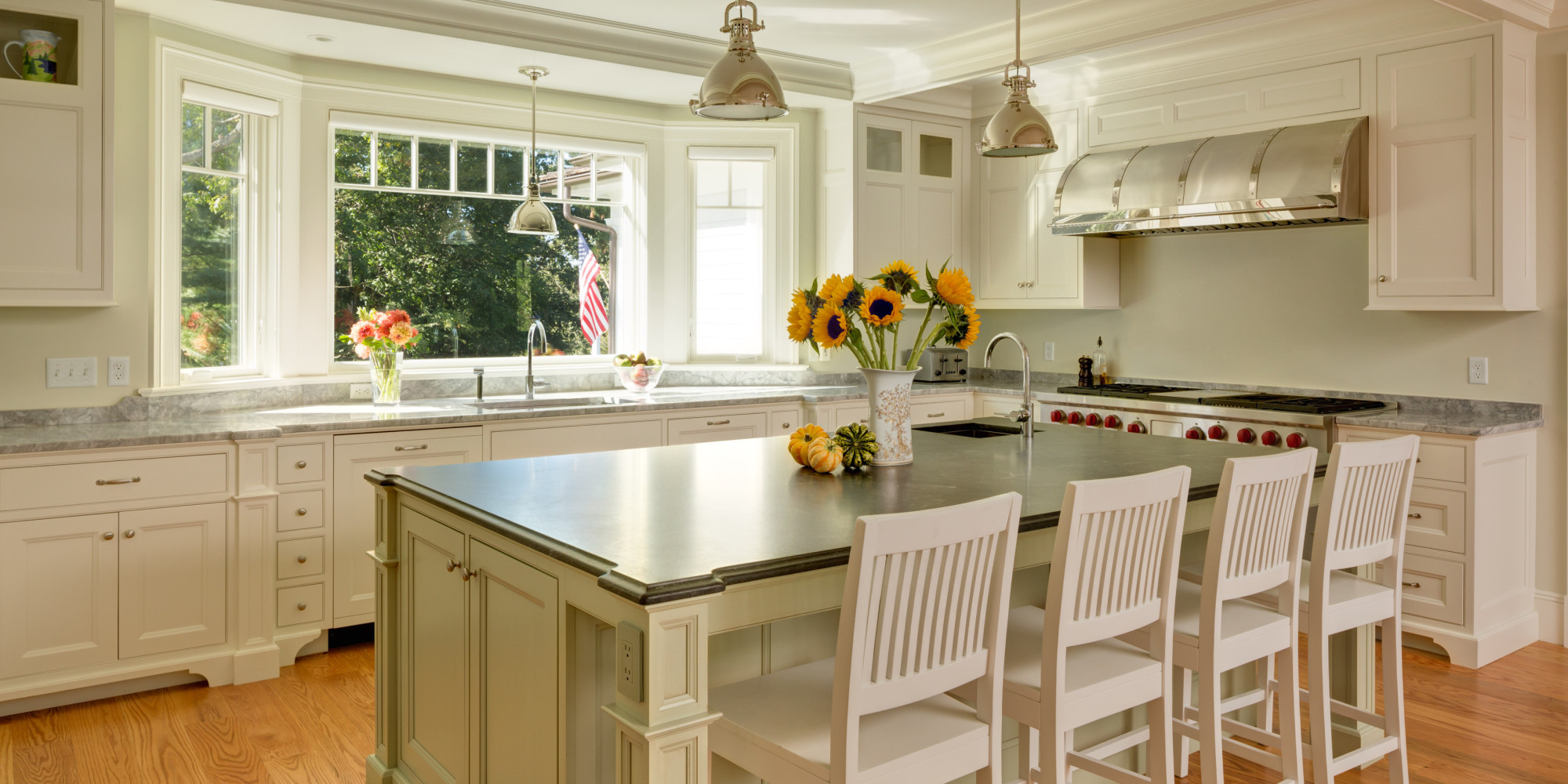
Redesigning your kitchen is a big financial investment, so you need to get it right. But money is only one part of it. The kitchen is, after all, the heart of the home – it’s where we come together as a family to cook and eat, relax and socialise. Arguably, it’s the most important space in the house.
That’s why choosing the right kitchen design company is possibly the biggest decision you need to make. Having an expert by your side to guide you through the entire process – from inspiring you at the design stage right through to assisting with snagging issues at the end – is paramount to ensure that the project goes smoothly and you end up with the kitchen of your dreams.
If you’re not sure how to go about selecting the best kitchen designer, here are some handy tips to help you make the right decision. While your final choice may well come down to ‘gut feeling’ and personal chemistry, don’t be afraid to ask lots of questions. There are worse things to be than an awkward customer!
- Design credentials
Every kitchen designer will tell you they’re the best but how do you know whether that’s really the case? Take a close look at their background and experience. How long have they been pursuing a career in interior design? Have they won any awards? How many kitchens have they actually designed and can you seem some examples of their recent work?
It’s important to choose someone who is on the same wavelength as you, and that goes for creative design too. If you’re after a contemporary kitchen scheme, look for a designer with a track record in cutting edge hi-tech kitchen design, not a traditionalist.
2. Technical skills
In addition to creative flair, your chosen designer needs to have the technical capabilities that are necessary for the job. From architectural drafting and construction experience to CAD kitchen design software knowledge, it’s important that they understand – no, have a passion for – building design in a 3D context.
Ultimately, the success of your kitchen design will manifest in the finished installation. The best kitchen are precision engineered, fitting like a glove and looking amazing. You need someone who has the vision to see the finished result while being obsessed with every little detail in an effort to make it happen.
3. Product knowledge
One of the advantages of using a kitchen design company is that they have up-to-the-minute knowledge and unfettered access to a huge variety of kitchen products that can be sourced domestically and internationally. From cabinets and furniture to sinks, taps and appliances, tiles and flooring options and more, they are your point of contact for every item that goes into your kitchen.
Find out if your shortlisted kitchen designer works with a bespoke cabinet maker, kitchen furniture supplier or select appliance brands. Be sure that they will take charge of managing stock/supply queries and delivery timescales so you don’t have to.
4. The showroom
Every established kitchen design company worth its salt should have an impressive showroom. It’s their chance to show off what they can do in terms of design and creativity, showcasing the latest trends and leading edge products in an effort to wow you, the customer. When you walk into the showroom, your eyes should literally light up.
Perusing the different layouts and room sets on display will allow you to see first hand the types of kitchens they design and build. This, in turn, is a key opportunity for you to decide if this is the right kitchen designer to make your dream kitchen a reality.
5. Understanding the client
This is where it gets interesting. Interpreting your needs and style preferences is a key skill of any kitchen designer. Is he listening closely to your ideas and concerns? Is he asking lots of questions about your lifestyle, cooking style and how you wish to use the new kitchen space? The best designer will offer plenty of advice and support, guiding you to achieve a kitchen design that fully satisfies all your requirements.
You’re the client, so you can set the terms. Whether you have your own builder for the install and only need a design service, or you’re after a fully project managed design and build service, don’t work with a kitchen designer if you feel that they’re pushing their agenda rather than listing to what you want.
6. Communication skills
Trust, respect and honesty are the cornerstones for any good relationship. When it comes to kitchen design, the importance of having a great teamwork cannot be overstated. Make use of a free initial consultation meeting and use the opportunity to assess your designer’s way of doing business and their communication skills.
They’ll not only need to liaise with you, the client, but also with suppliers, contractors and other professionals to get the job done on budget and on time. If you’re not sure they’ll be able to manage all this confidently, then move on.
7. Testimonials and reviews
Finally, don’t underestimate the power of customer feedback. Ask around among family and friends to see if anyone has had a particularly positive (or negative!) experience with a kitchen designer recently, and see if you can find independent testimonials to form your own view.
Ask your preferred kitchen design company to put you in touch with a couple of previous clients so you can ask your own questions, and also check out the Testimonials page on their website.




 POSTED BY
POSTED BY 

